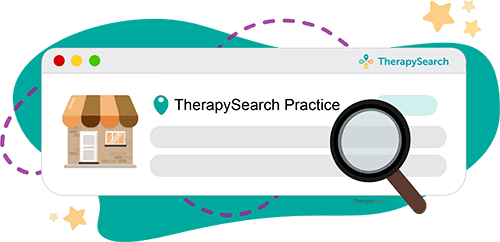5 Things You Should Examine to Make Sure Your Practice’s Website Is Working
By Becky DeGrossa on January 16, 2019

You've invested time and money into building your practice website, but you still aren’t getting calls. Many private practice owners assume that means their website is broken. They don’t know what went wrong, though…just that something isn’t working. So, they invest more time and more money into different solutions without knowing what their website really needs.
Here’s the thing: it isn’t just a website problem.
- It could be a traffic problem. Not enough people are visiting your site.
- It could be a targeting problem. The wrong people are visiting your site.
- It could be a messaging problem. The right people are visiting your site, but they aren’t calling (or the people who do call aren’t your ideal clients).
You wouldn’t buy a new car without considering why the last one broke down and where you need the new one to take you. The same is true when updating your website (or building a new one). As a practice owner, you can assess your situation and KNOW where the holes are. Instead of guessing and hoping, you can see clearly what needs to happen to get the results you want.
Here are five steps you can take today to see exactly what your website needs to drive calls and fill your practice. Take these steps early so you can make 2019 your best year yet.
1. Find Out What Terms You Rank For
Clients won’t call if they can’t find your website. The very first thing to check is to see if you're ranking for the high traffic terms that your practice specializes in.
If your specialty is depression, for example, your specialty page should rank on the first page of search results for terms like “depression treatment” or “depression therapist.” Failing to rank for those terms means potential clients are going to have a much harder time finding your website (if they can find it at all).
Tools like Serpfox allow you to easily track the terms your site is ranking for, which can shed light on the specific steps you need to take to drive more site visitors and generate more client calls.
2. Find Out How Long Visitors Stay on Your Website
Ranking on page one of search results doesn’t guarantee a full practice. The longer people stay on your site, the more pages they’ll view, and the more likely they are to call.
If you notice people aren’t staying on your site, it could point to a design or messaging problem. If potential clients don’t know what page or link to click on—or if the page loads too slowly—they’re more likely to leave than to spend time figuring it out. You also need a compelling message that immediately grabs the reader’s attention and shows that you understand what they’re going through.
Google Analytics is an easy-to-install, free resource every website should take advantage of. The data it provides can reveal all sorts of wins and gaps in your online marketing.
3. Check If Your Visitors Are Local
Some therapists tell us they get thousands of visitors to their website each month, but no one calls, “so online marketing must not work.”
If you’re getting plenty of traffic but not enough calls, check to see how much of your traffic is local. Let’s say you wrote a great page talking about financial fears. You may get thousands of hits every month from people searching for “money fears” or “financial problems,” but because they aren’t local, they won’t call for you for therapy.
Once again, Google Analytics is a free tool you can use to track where site traffic is originating from. If you aren’t getting enough traffic from local sources, you can improve your local SEO. A local SEO expert or agency can help troubleshoot, and the increase in client calls they generate can offset the cost almost immediately.
4. Find Out How Many Local Visitors Are Scheduling a Call
Of your local visitors, how many phone calls do you get?
If you’re generating local traffic but still can’t fill your practice, it could mean you have a messaging problem. Take the time to write longer website copy (at least 1,000 words) that is both engaging and optimized for high-volume search terms. Not only will this drive more visitors to your website, but it will also increase the conversion rate by ensuring your message resonates with potential clients.
5. Examine the Quality of Calls You Do Receive
Your website copy should help you connect with potential clients: what are they struggling with? How can you normalize the issue so they don’t feel alone? What can they expect after doing therapy for their issue?
If potential clients aren't saying things like, “You spoke to me so perfectly,” or “I can't believe that you knew what my family was going through,” then your website copy isn't specific, thorough, or empathetic enough.
Don’t just list what specialties you provide, and don’t assume clients already know everything about their condition or your approach. Many therapy clients are on the fence about calling; they will only reach out if they connect with you and feel that you can help them.
Finding the Problem Can Provide the Solution
Your website should work for you, driving traffic and generating calls from ideal clients. If it isn’t delivering the results you expect or need, don’t give up hope…you might be just one or two steps away from a full practice.
Once you know what problems are limiting your online marketing, you’ll know exactly what to do to improve results.
* The content of this post is intended to serve as general advice and information. It is not to be taken as legal advice and may not account for all rules and regulations in every jurisdiction. For legal advice, please contact an attorney.
About Becky DeGrossa
Get more content like this, delivered right to your inbox. Subscribe to our newsletter.
More Content You'll Enjoy

Converting Clients

What's New: Introducing Practice Profiles in TherapySearch!
